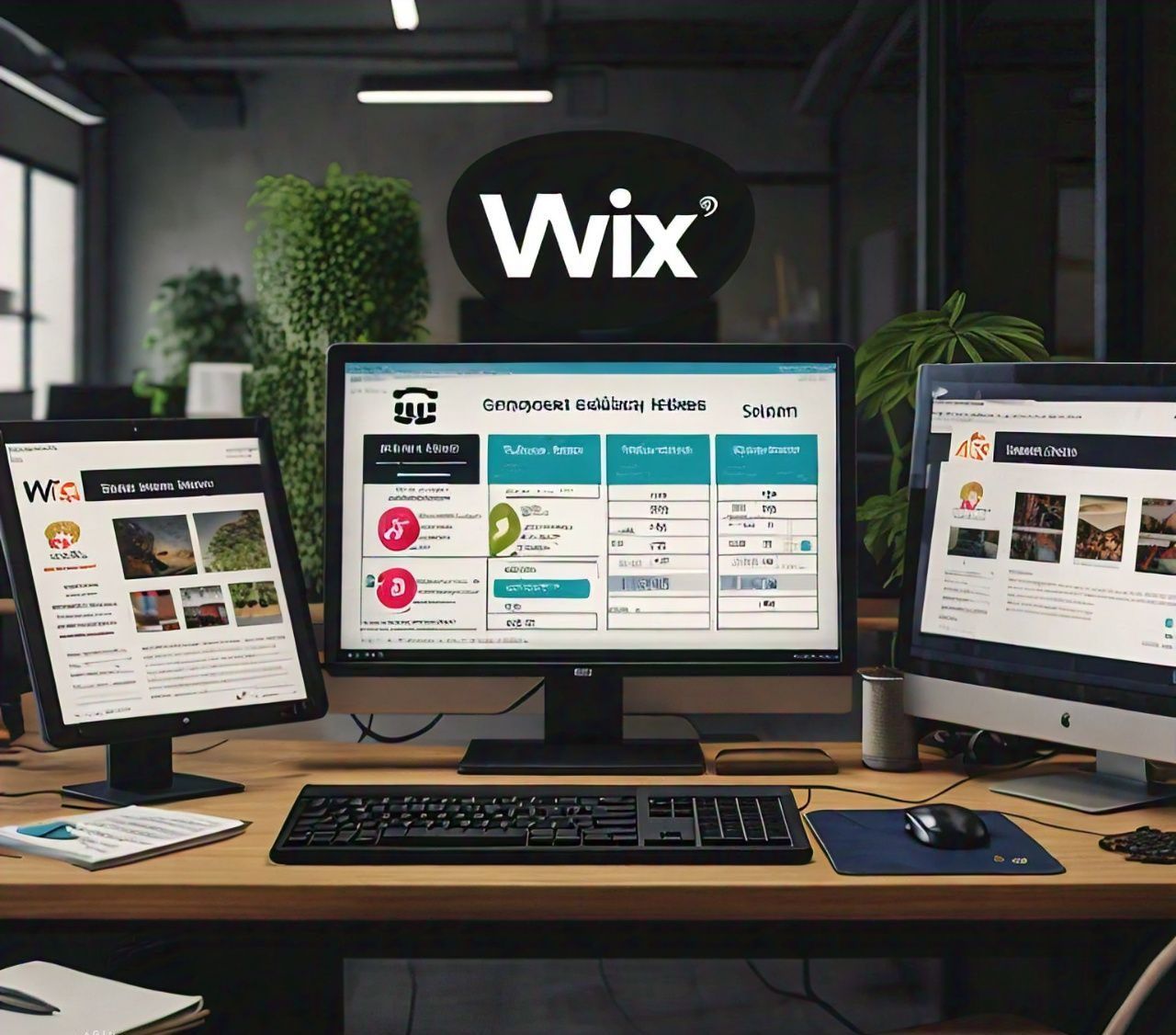Wix vs. Shopify Which Platform is Best for Your E-commerce Store?
Choosing the right platform for your e-commerce store can be a daunting task. With so many options available, the decision often boils down to two popular choices: Wix and Shopify. Both are powerful platforms but serve different purposes, making it essential to understand their strengths and weaknesses. Whether you’re a new entrepreneur or an established business looking to switch, this comparison will help you decide which platform is the best fit for your online store.
Overview of Wix and Shopify
What is Wix?
Wix started as a website builder aimed at providing users with a flexible and visually appealing way to create websites without the need for coding knowledge. Over the years, it has expanded its features to include e-commerce capabilities, allowing users to sell products online. Wix is ideal for small business owners who want a simple, drag-and-drop builder to create a hybrid website that offers basic e-commerce functionality.
What is Shopify?
Shopify, on the other hand, is a dedicated e-commerce platform designed to help businesses build, customize, and scale online stores. With its powerful e-commerce tools, Shopify offers everything you need to manage your store, from product listings and inventory management to multi-channel selling and advanced analytics. Shopify is an excellent choice for businesses focused primarily on online sales.
Key Features Comparison
1. Ease of Use
Both Wix and Shopify are user-friendly, but they cater to different types of users:
- Wix: Known for its intuitive drag-and-drop interface, Wix is ideal for beginners or those looking to create a basic online store quickly. With over 500 templates and a visual editor, it’s easy to customize a site without technical expertise.
- Shopify: While Shopify’s interface is also straightforward, it’s more feature-rich and tailored for e-commerce. The setup process involves selecting a theme, adding products, and configuring settings. For newcomers, Shopify might have a steeper learning curve, but the platform offers step-by-step guides and extensive support.
Verdict: If you prioritize ease of design and website flexibility, go with Wix. For e-commerce-focused usability, Shopify takes the lead.
2. E-commerce Features
When it comes to e-commerce capabilities, Shopify outshines Wix with its specialized tools:
- Wix: Provides basic e-commerce features such as product listings, inventory management, and payment gateways. It’s suitable for small stores with limited products.
- Shopify: Offers advanced e-commerce features like abandoned cart recovery, multi-channel selling, professional reporting, and a massive app ecosystem. Shopify supports unlimited products and categories, making it ideal for growing businesses.
Verdict: For comprehensive e-commerce functionality, Shopify is the better choice.
3. Themes and Design Customization
Design plays a crucial role in your store’s branding and customer experience:
- Wix: Offers over 500 customizable templates with beautiful designs, but once you select a template, it’s difficult to switch without rebuilding your site. The drag-and-drop editor gives you creative freedom, but this flexibility can sometimes lead to design inconsistencies.
- Shopify: Features a range of professionally designed themes tailored specifically for e-commerce. While Shopify themes are less customizable than Wix’s, they are built to enhance conversions and provide a seamless shopping experience. Shopify’s themes are mobile-responsive, ensuring your store looks great on any device.
Verdict: Wix is better for creative control, but Shopify’s themes are more optimized for sales.
4. Payment Gateways and Transaction Fees
Both platforms support multiple payment gateways, but Shopify’s integrations are more robust:
- Wix: Supports major gateways like PayPal, Stripe, and Square. Wix does not charge additional transaction fees beyond the payment gateway’s fees.
- Shopify: Supports over 100 payment gateways, making it easier to cater to international customers. If you use Shopify Payments, there are no additional transaction fees, but if you use third-party gateways, Shopify charges a fee ranging from 0.5% to 2%, depending on your plan.
Verdict: Shopify offers more flexibility, but Wix might be better for smaller stores looking to minimize costs.
5. Scalability and Performance
Scalability is crucial if you’re planning to grow your business:
- Wix: Suitable for small to medium-sized stores, but scalability is limited. Wix stores may struggle with performance issues if you have a large inventory or high traffic volume.
- Shopify: Built for scalability, Shopify can handle thousands of products and large volumes of traffic without compromising on performance. Shopify’s infrastructure and global CDN ensure fast loading times, which is critical for SEO and user experience.
Verdict: For large-scale operations, Shopify is the clear winner.
6. Apps and Integrations
Both platforms offer apps to extend functionality, but Shopify has a more extensive marketplace:
- Wix: Wix’s app market offers around 250 apps that cover basic needs like marketing, customer support, and social media integrations.
- Shopify: Boasts over 4,000 apps that can enhance every aspect of your store, from advanced analytics and shipping to customer loyalty programs and AI-powered product recommendations.
Verdict: Shopify’s app store is unmatched for e-commerce businesses looking to add specialized features.
7. SEO and Marketing Tools
SEO is vital for driving organic traffic, and marketing tools are key for engaging customers:
- Wix: Offers decent SEO capabilities like customizable meta tags, URLs, and alt texts. Wix’s marketing tools include email marketing, social posts, and a simple CRM.
- Shopify: Provides powerful SEO tools, including customizable metadata, automatic sitemap generation, and faster site speeds. Shopify also integrates seamlessly with major marketing tools like Google Analytics, Facebook, and various email marketing platforms.
Verdict: Shopify’s superior SEO and marketing capabilities make it better for serious online sellers.
Wix to Shopify: Making the Switch
If you’ve realized that Shopify is a better fit for your store’s needs, you might be considering a Wix to Shopify migration. While Wix is a great starting point, many businesses outgrow its capabilities and look for a more specialized platform like Shopify. The migration process involves transferring products, customer data, and content, but the benefits far outweigh the effort.
Shopify’s advanced e-commerce tools, scalability, and extensive support make it the ideal platform for businesses focused on growth. Once you make the switch, you’ll have access to features like multi-channel selling, abandoned cart recovery, and powerful analytics, all of which can significantly boost your sales and streamline your operations.
Conclusion: Which Platform is Best?
The decision between Wix and Shopify depends on your business needs. If you’re just starting out and want a versatile website with some e-commerce capabilities, Wix is a good choice. However, if your primary focus is on building a powerful online store with advanced e-commerce features, superior scalability, and robust performance, Shopify is the way to go.
For growing businesses ready to make the leap, consider a Wix to Shopify migration to unlock the full potential of your e-commerce store. Shopify’s specialized features and powerful tools will help you boost sales and take your business to the next level.







Post Comment